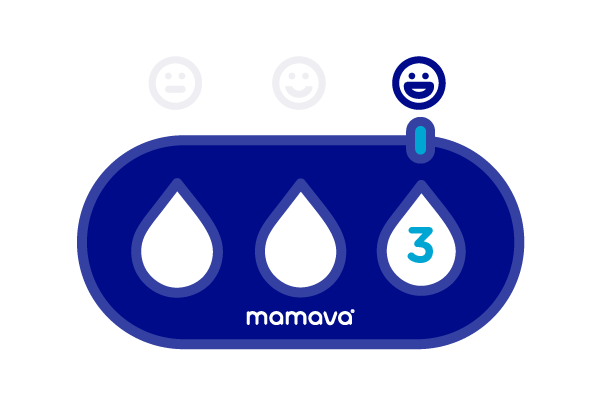Illinois Breastfeeding Laws
Mothers in Illinois have the right to breastfeed in any public or private place they’re allowed to be. Illinois is a breastfeeding-positive state with workplace lactation accommodation protections that exceed the federal FLSA’s PUMP Act.
We’ve awarded Illinois three drops on our scale.
IL Breastfeeding Laws: In Public
Mothers in Illinois have the right to breastfeed in public. Read the law: Ill. Rev. Stat. ch. 740 § 137 (2004)
IL Breastfeeding Laws: At Work
The federal FLSA’s PUMP for Nursing Mothers Act protects all breastfeeding employees, but Illinois law is even stronger. Illinois employers with more than five employees are required to support breastfeeding employees by providing reasonable break time, and a space (other than a bathroom) to pump at work. The law was amended in 2018 to remove the language of “unpaid break time.” Read the law: Ill. Rev. Stat. ch. 820 § 260
IL Breastfeeding Laws: Airports
Illinois passed the Lactation Accommodation in Airports Act in 2016 mandating airports (with more than a million enplanements a year) to provide lactation accommodations beyond security in every terminal. Read the law: Public Act 099-0228
IL Breastfeeding Laws: Courthouses
As of June 1, 2019, all Illinois courthouses (or buildings that house circuit courts) must provide a private lactation space. The law further stipulates that the lactation space cannot be a bathroom, and must include a chair, an outlet, and, when possible, a sink. Read the law: SB 3503/PA 100-0947
IL Breastfeeding Laws: The Department of Corrections
Each Department of Corrections facility that employs nursing mothers must provide a lactation room for personnel. Each room must include a locking door, an “occupied” sign, outlets, comfortable chairs, a table/countertop, refrigerator, waste basket, chemical cleaners, and a sink. The room should also have lighting and ventilation, and receive daily maintenance. Read the law: HB4819 [Section 14-15]
IL Breastfeeding Laws: Schools
All Illinois public and charter schools must support breastfeeding students by providing a time and a private pace to pump. Read the law: HB2369
IL Breastfeeding Laws: Breastfeeding-Positive Municipalities
Chicago
The windy city took the lead on supporting breastfeeding travelers by passing a lactation accommodation law for all Chicago airports in 2015 (one year before Illinois passed the state law). All airports in the city must have a lactation space (other than a restroom) beyond security in every terminal. Read the law: Municipal Code Chapter 10-36. Section 10-36-345
IL Breastfeeding Information + Resources
Breastfeeding mothers in Illinois are exempt from public indecency laws and can be exempt from jury duty upon request. In addition, IL passed a law in 2020 that clarifies the rights women have during pregnancy and childbirth, including the right to information about breastfeeding. Read the law: 410 ILCS 50/3.4
The Illinois State Breastfeeding Task Force “strives to create change that results in breastfeeding as the cultural norm. Our goal is that all families will live, work and receive health care in a breastfeeding friendly culture.” Visit U.S. Breastfeeding Committee for a full list of state breastfeeding coalitions.
Mamava designs solutions to empower breastfeeding and pumping parents on the go, like our freestanding lactation pods and lactation space locator app.
Laws are constantly evolving—which is a good thing! So if we’ve missed something, contact us at hello@mamava.com.
Disclaimer: Please consult a professional for legal advice. Mamava’s information on breastfeeding laws is not a substitute for legal counsel.
We'd Love to Help You Further
Employers and Facilities
Breastfeeding People
Mamava’s Breastfeeding Law Rating Key
One drop: State does not have any workplace lactation legislation that exceeds the PUMP Act.
Two drops: State law exceeds the PUMP Act in one of the following ways: 1) Lower threshold for employer exemption); 2) Workplace protections beyond one year; 3) Requirements for lactation spaces (e.g. electrical outlets); 4) Protections for specific populations other than employees (e.g. students).
Three drops: State law exceeds the PUMP Act in at least two of the following ways: 1) Lower threshold for employer exemption); 2) workplace protections beyond one year; 3) requirements for lactation spaces (e.g. electrical outlets); 4) protections for specific populations other than employees (e.g. students).

